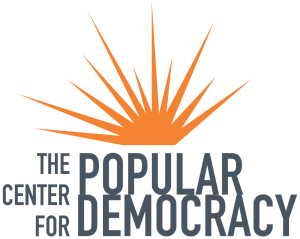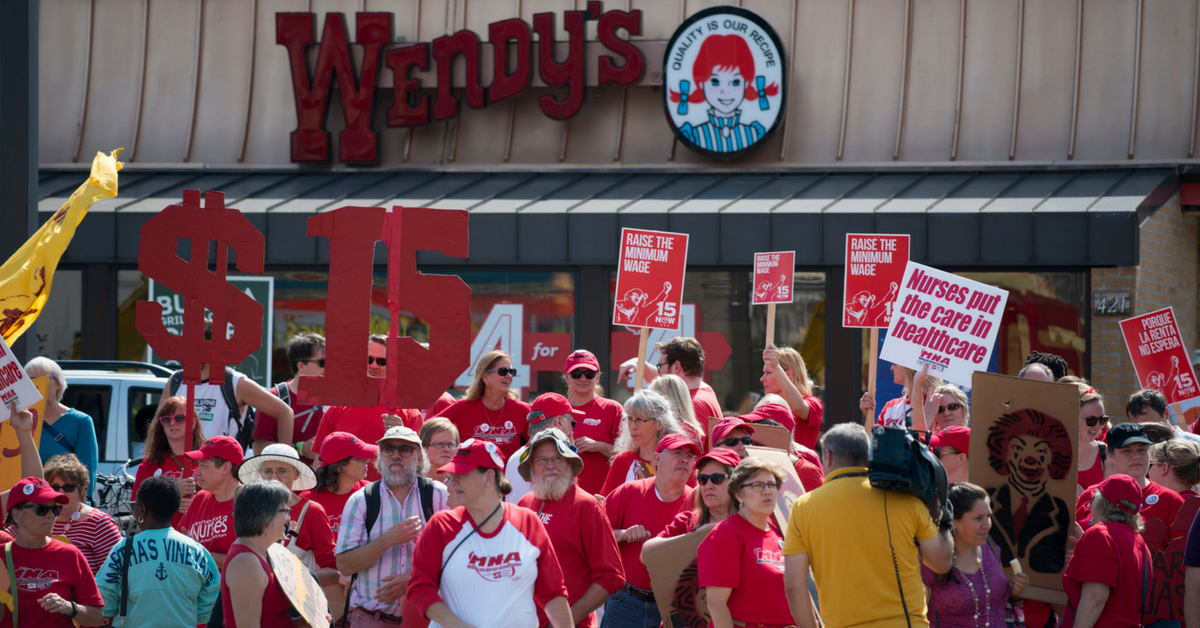Editor’s note: This post is part of an ongoing series of posts featuring NCRP nonprofit members.
Grantmaking in this new era calls for funders who trust their grantees with general operating support and who acknowledge and support leaders of color.
 The Center for Popular Democracy (CPD)’s successes and structure present a testament to these two needs.
The Center for Popular Democracy (CPD)’s successes and structure present a testament to these two needs.
Founded in 2012, CPD has skyrocketed into a leading voice for equity, opportunity and a dynamic democracy with 50 affiliates whose work impacts people in 126 cities, 34 states, Washington, D.C., and Puerto Rico. Two-thirds of their affiliates are Black- or Latinx-led.
The organization builds power among communities of color, immigrants, working families and LGBTQ individuals to tear down the structural barriers that restrict their full inclusion into American society.
CPD trains and supports an organization’s leaders, staff and members to be the owners and drivers of their organizations, while pursuing a broader collective movement for a just, healthy and joyful world.
Since the 2016 election, affiliates of the CPD network have helped organize more than 860 resistance events that were attended by more than half a million people. The network also hosted 15 major civil disobedience actions on issues ranging from immigration to taxation to health care.
These are the results:
- Twelve million workers now enjoy a higher minimum wage in Arizona, Colorado, Washington, California, New York, Vermont, Oregon, Minneapolis and Washington, D.C., thanks in part to CPD’s tireless work.
- Their Fair Workweek Initiative has moved policy wins for another one million workers across the country.
- Their network registered 40,000 re-entering citizens in Maryland and moved 25,000 formerly incarcerated Virginians to the polls in 2017.
- CPD and its affiliates expanded, defended or won new local- and state-level sanctuary policies everywhere from Denver to Illinois to Bridgeport, Connecticut.
- Their Hurricane Maria Community Recovery Fund in raised in two months more than $4 million to support immediate relief, recovery and equitable rebuilding in the territory. A Puerto Rican advisory team ensured the funds went to the grassroots organizations and individuals guiding the recovery and rebuild.
Despite how it may look on the outside, the organization sees its fair share of hurdles. One is the lack of flexible funding that’s available.
As new problems arise faster than ever before, CPD and its affiliates, like many organizations operating in our time, need the flexibility to change course at any given moment.
The organization’s minimum wage win in Minneapolis was a moment of celebration. It felt to the CPD network like the most important thing going on in the state of Minnesota at the time – until a police officer shot and killed Philando Castille.
Suddenly, in order to be responsive to the needs of that community, they had to pivot from the campaign to a crisis response. In perfect conditions that’s hard to do – a lack of general operating support made it even harder.
General operating support allows nonprofits to nimbly move from one issue to another. This is a critical step toward building power in disadvantaged communities.
If they were freed from project-specific grants, CPD and its affiliates could use their expertise to address issues when they arise instead of having to wait for the next fiscal year.
As the list of wins above shows, these are organizations worth trusting with this responsibility.
Another issue is the discrepancy between funding for white-led versus people of color-led organizations. The sector’s underinvestment in leadership for nonprofits of color has been well documented.
According to Network President and Co-Executive Director Jennifer Epps-Addison, CPD’s Black and Latinx-led affiliates rarely have asset reserves, forcing them to live paycheck to paycheck on grants.
The Annie E. Casey Foundation reported that 60 percent of people served by nonprofits hail from communities of color; CPD and its affiliates are no exception.
If philanthropy wants to sufficiently move the entire country together in the direction towards equity, justice and progress, it has to support leaders of color in the same way the sector has supported the sector’s white leadership.
A survey of the sector done by the Building Movement Project found a “lack of difference” in qualifications and backgrounds for white respondents and respondents of color. That leaders of color have a harder time fundraising reflects not any failure of their own, but instead the racial bias of people at foundations.
In this new era, bringing about an equitable world requires both general operating support and a specific dedication to adequately resourcing leaders of color. Anything less is no longer acceptable.
Troy Price is NCRP’s membership and fundraising intern. Follow @NCRP on Twitter.
Image by Fibonacci Blue. Used under Creative Commons license.














































































































































































































































































































































































































Leave a Reply